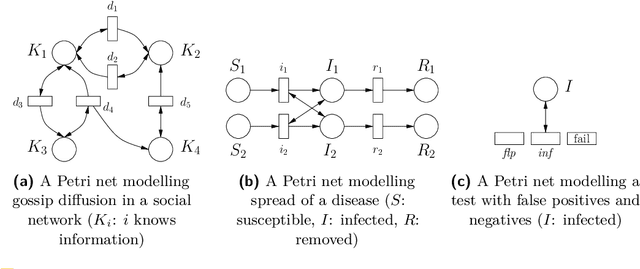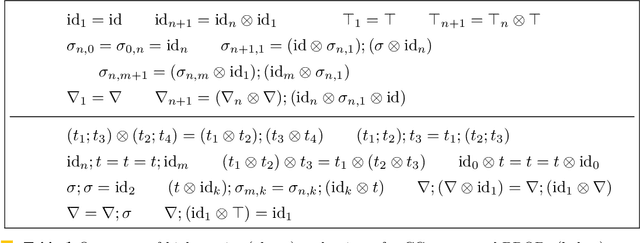Benjamin Cabrera
Uncertainty Reasoning for Probabilistic Petri Nets via Bayesian Networks
Sep 30, 2020



Abstract:This paper exploits extended Bayesian networks for uncertainty reasoning on Petri nets, where firing of transitions is probabilistic. In particular, Bayesian networks are used as symbolic representations of probability distributions, modelling the observer's knowledge about the tokens in the net. The observer can study the net by monitoring successful and failed steps. An update mechanism for Bayesian nets is enabled by relaxing some of their restrictions, leading to modular Bayesian nets that can conveniently be represented and modified. As for every symbolic representation, the question is how to derive information - in this case marginal probability distributions - from a modular Bayesian net. We show how to do this by generalizing the known method of variable elimination. The approach is illustrated by examples about the spreading of diseases (SIR model) and information diffusion in social networks. We have implemented our approach and provide runtime results.
Measuring the Reliability of Hate Speech Annotations: The Case of the European Refugee Crisis
Jan 27, 2017

Abstract:Some users of social media are spreading racist, sexist, and otherwise hateful content. For the purpose of training a hate speech detection system, the reliability of the annotations is crucial, but there is no universally agreed-upon definition. We collected potentially hateful messages and asked two groups of internet users to determine whether they were hate speech or not, whether they should be banned or not and to rate their degree of offensiveness. One of the groups was shown a definition prior to completing the survey. We aimed to assess whether hate speech can be annotated reliably, and the extent to which existing definitions are in accordance with subjective ratings. Our results indicate that showing users a definition caused them to partially align their own opinion with the definition but did not improve reliability, which was very low overall. We conclude that the presence of hate speech should perhaps not be considered a binary yes-or-no decision, and raters need more detailed instructions for the annotation.
 Add to Chrome
Add to Chrome Add to Firefox
Add to Firefox Add to Edge
Add to Edge